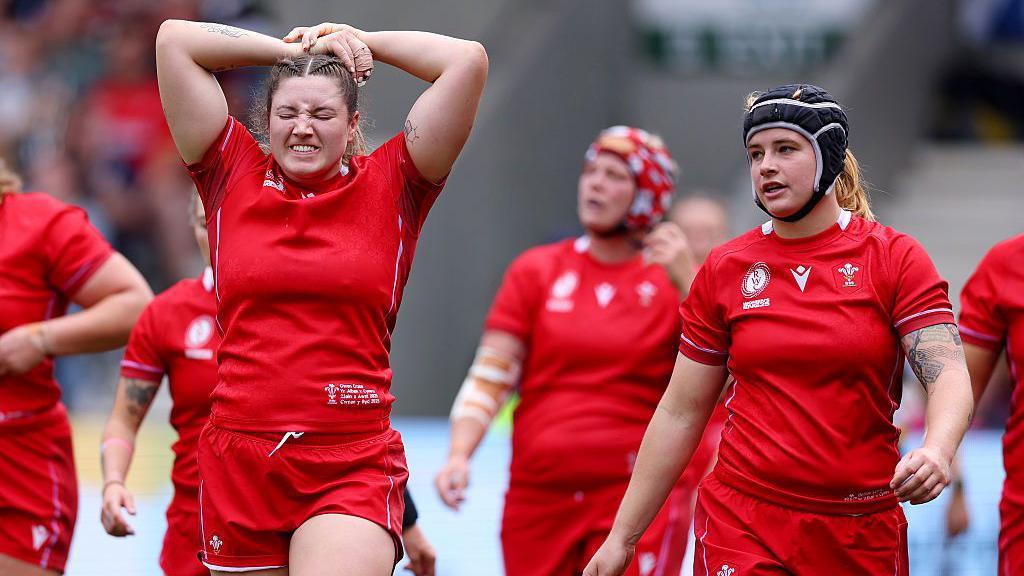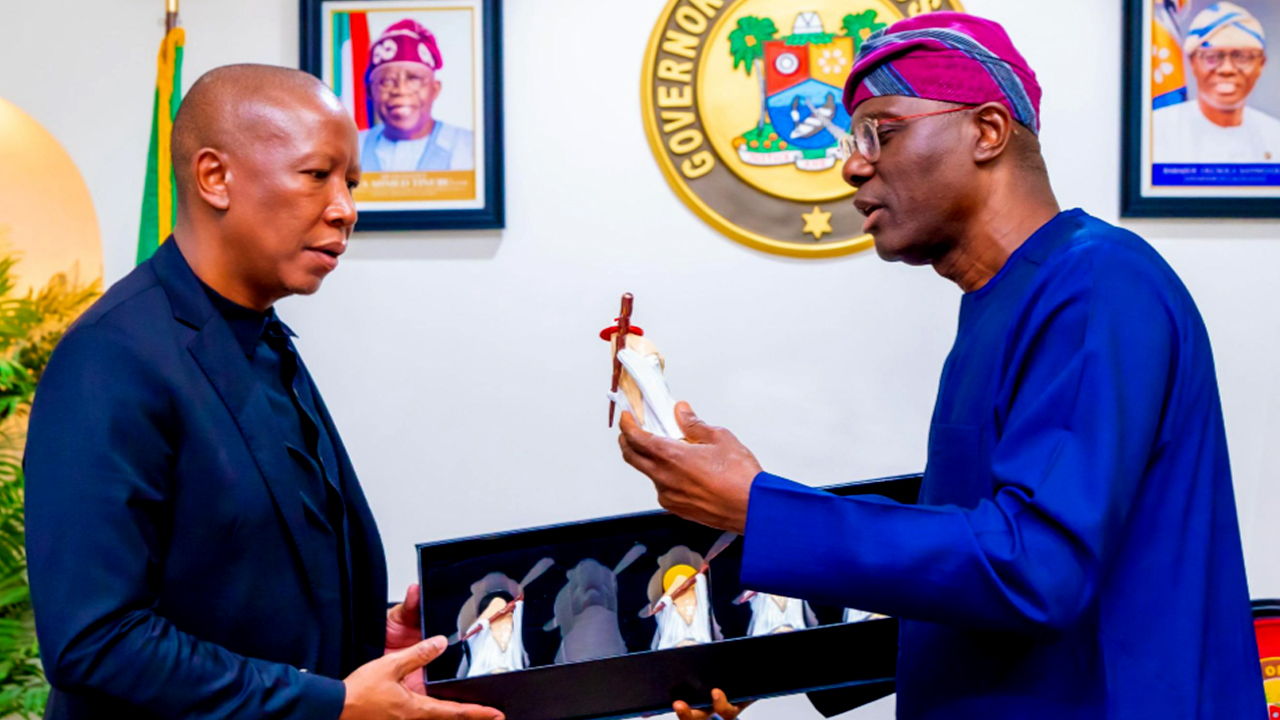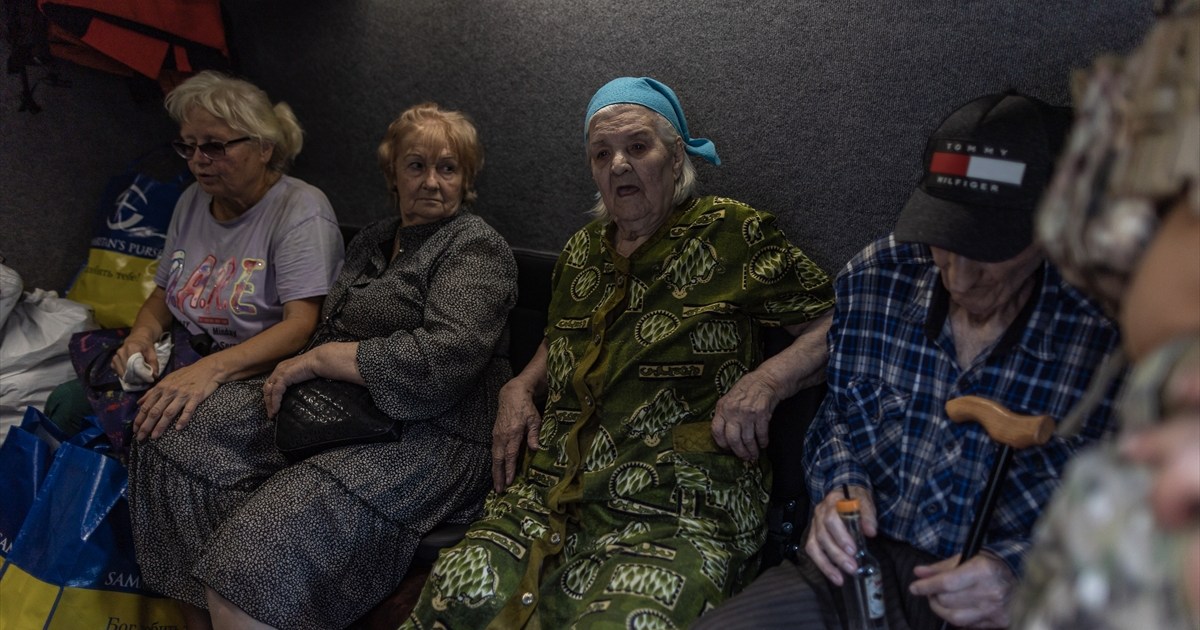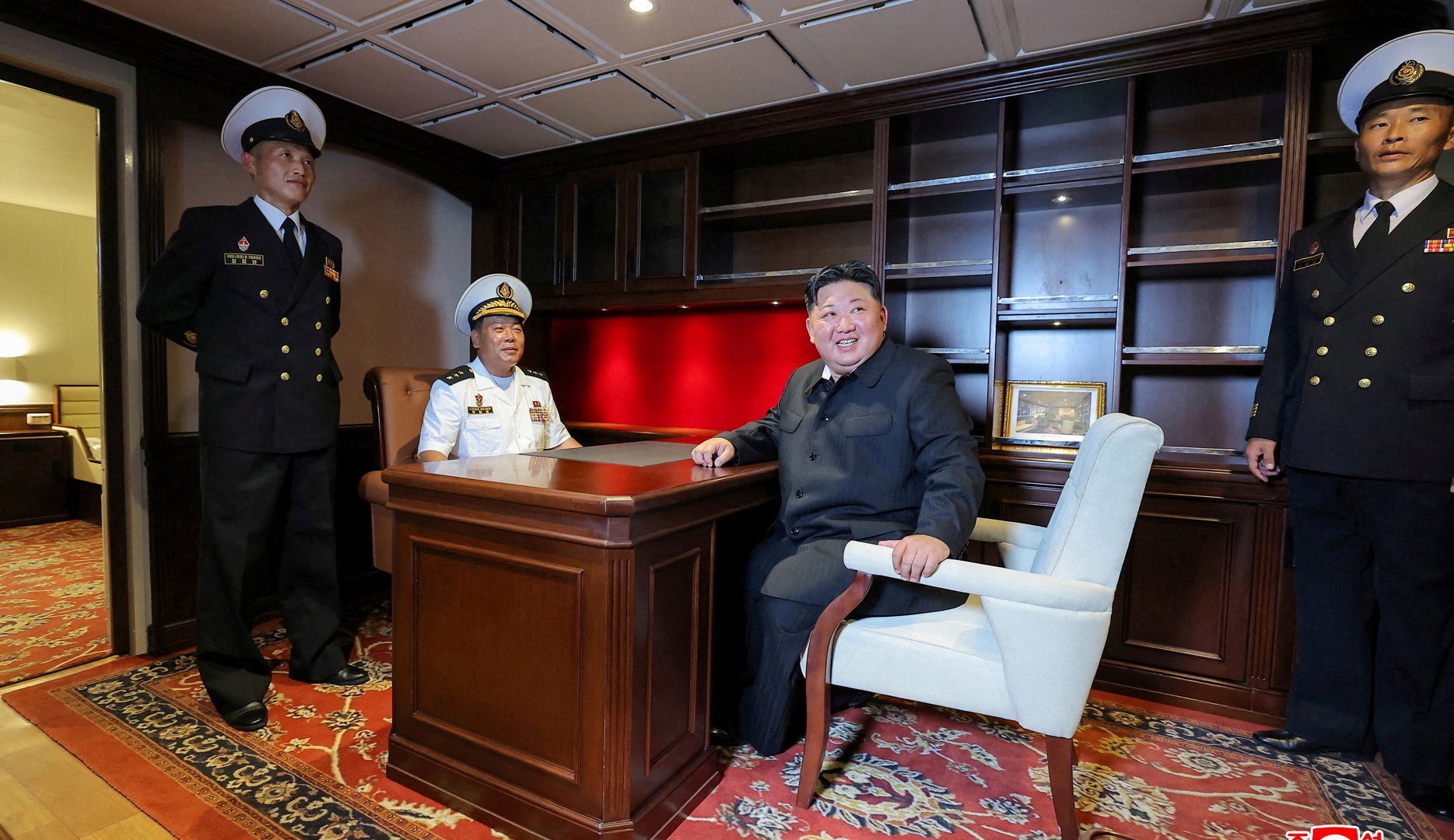- 91 Comments
Wales knew their World Cup hopes could rest on the outcome of their opening game against Scotland but were found desperately wanting.
Rather than kick-off the campaign with a major win, they lost to Scotland by a record score.
Scotland said they were fuelled by revenge for the agonising last-gasp defeat by Wales at the last tournament in 2022.
But Wales head coach Sean Lynn admitted the 38-8 loss “simply wasn’t good enough” while pundits branded the performance poor, weak and soft.
Sort the tactics
This was Lynn’s eighth game in charge of Wales and he remains with just one win – albeit a significant one in Australia.
He took over the role with a burgeoning reputation after back-to-back Premiership titles with Gloucester-Hartpury and was the players’ choice.
But former Wales captain Sioned Harries has yet to see progress.
“We need to question what changes we’ve seen in this Wales camp because it hasn’t changed anything on the pitch,” she said.
“Wales looked tired after defending for 80 minutes. But the question is why were they defending for 80 minutes? It’s because the tactics weren’t right.
“This Wales team feels like a team of individuals and not a cohesive team.
“Sean Lynn has had a Six Nations with the team and two tests in Australia. He knows a lot of the players from Gloucester-Hartpury, so there is no excuse for this performance.
“If we play like that in the next two games, then we have no hope of getting out of the group.
“This was Wales’ most important game but they’ve made it 100 times harder to qualify.”
Stop the bullying

Former Wales rugby league international Ben Flower had been brought in to work on the contact area and co-captain Kate Williams had praised the higher intensity training.
But ex-international Siwan Lillicrap described Wales as “soft” as they were torn apart by Scotland’s back three – not least hat-trick hero Francesca McGhie.
Wales had a tackle success rate of 85% – compared to Scotland’s 90% – but they missed some crucial ones.
Centres Hannah Dallavalle and Courtney Keight, as well as full-back Nel Metcalfe, all failed to stop the opening-minute try.
And it was a similar story for the fourth – at the start of the second half – when Lleucu George flapped at Rhona Lloyd before Keira Bevan and Metcalfe could not prevent McGhie completing her hat-trick.
It was a constant theme throughout as Scotland made most almost twice the number of metres after contact (264m) than Wales (139m).
“We got bullied off the pitch,” said former Wales wing Caryl James.
“Wales’ defence couldn’t deal with Scotland’s physicality at all. I was surprised at how poor Wales were, I didn’t expect them to be so weak.”
Ex-Wales captain Ken Owens added: “It’s disappointing. Sean Lynn was discussing how they’ve been working on defence but Scotland dominated the gainline. But Scotland turned up and found the edges very easy – way too easy.”
Start faster
Lynn had spoken of playing with intensity but Wales got off to the worst possible start – in both halves.
McGhie crossed just 55 seconds into their World Cup.
The head coach would have hammered home the message for a good start after trailing 17-8 at the break.
But Lleucu George’s clearance was charged down just 17 seconds into the second-half. That led to the scrambling Metcalfe knocking on and Scotland swiftly grabbing a crucial fourth try moments later to stretch clear 24-8.
To play this video you need to enable JavaScript in your browser.
Sharpen the attack
The contrast between the two attacks was stark.
Scotland were ruthless and not only made far more carries, they tellingly beat 23 defenders compared to Wales’ seven and made eight clean breaks. Wales made one.
After the match, Scotland captain Rachel Malcolm spoke of a feeling of “inevitability” among her players on the pitch that they would score if they kept the ball.
They were also confident they could repel anything Wales threw at them. And they did.
Wales chased the scoreboard with an open game that was far from their forward power and that they are simply not comfortable with.
Welsh inefficiency saw them score just eight points from seven entries into Scotland’s 22-metre line and even managed to give away five penalties while attacking.
Improve bench impact

Lynn would have fancied he had power among his replacements to either turn the game or see out a win, particularly in Sisilia Tuipulotu, Georgia Evans, Carys Phillips, Kayleigh Powell and Carys Cox.
But despite emptying the bench earlier than planned, Wales were kept at bay.
Wales began rushing on the replacements as early as the 47th minute when trailing 24-8 – but failed to score a single point while conceding two more tries.
Lynn said: “Some players will be upset about individual performances and others by how the team played. But it just wasn’t good enough.
Related topics
- Welsh Rugby
- Wales Sport
- Rugby Union








